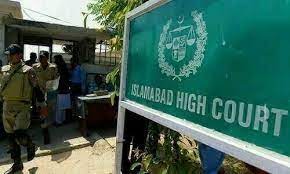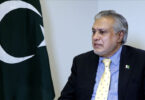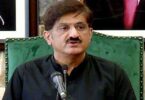ISLAMABAD (INP): The Islamabad High Court (IHC) on Wednesday adjourned the hearing of a petition of Pakistan Tehreek-e-Insaf PTI’s chief Imran Khan seeking to stop proceedings of the Toshakhana criminal case by the trial court and shifting it to another one, till Thursday.
IHC’s Chief Justice Aamer Farooq heard the case filed by the former prime minister. At the outset of hearing, the petitioner’s counsel Khawaja Harris argued that the trial court judge had not recorded the objections raised by the defence, observing that the court would view the same at the time of recording the evidence.
Harris said the complaint in the Toshakhana case was not lodged by the competent authority as the complainant could not show any authority letter of the Election Commission of Pakistan (ECP) in that regard. The court questioned whether the petitioner wanted the ECP to file the complaint itself through the District Election Commissioner.
The lawyer replied as per the law the District Election Commissioner could file the complaint, but the complainant was Deputy District Election Commissioner at the time of filing the complaint. Moreover, the signatures of the complainant were different at two places, he added.
Citing the reference of the appeal of Maryam Nawaz in the Avenfield reference, the chief justice remarked that it had been observed that the decision of the top court had a separate worth and merit would be viewed in the criminal case.
If the ECP had no judgment in the Toshakhana case then anyone could file a complaint regarding corruption or corrupt practices, he added. Khawaja Harris said the ECP had given a decision and the criminal case was filed on its basis. The ECP Secretary, who had no authority to give permission for filing of criminal cases, had allowed filing of the complaint in writing in the instant case, he added.
The chief justice remarked that the ECP had to prove its case. Civil proceedings were different but in a criminal case an accused had to face punishment. He asked whether an ECP member could permit filing of such complaints. To this the lawyer answered in affirmative.







